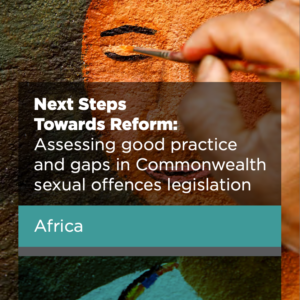Lesotho’s sexual offences laws are in the Sexual Offences Act 2003 (SOA) and the Penal Code Act 2012 (PCA). The Criminal Procedure and Evidence Act 1981 (CPEA) as amended, contains rules applicable to the prosecution of sexual offences.
Several important provisions of the SOA assessed in this research meet good practice standards. For example, the SOA criminalises all forms of non-consensual sexual penetration – by penis, objects and other body parts – of all orifices. Consensual same-sex sexual activity is not a crime. There is a good range of child sexual assault offences and consensual sexual activity with a person with a disability is not a crime. Lesotho has also legislated against the requirement for corroboration in sexual offences cases.
However, there are some exceptions for marital sexual assault and rape, contrary to human rights compliant good practice standards. Also, the past sexual history of a complainant of sexual assault is admissible to show a complainant was not a virgin before the sexual act. Allowing sexual reputation evidence for this purpose is inconsistent with good practice. The sexual offences provisions in the SOA and the PC appear inconsistent in places. Consolidating the two pieces of legislation would clarify the law.
Lesotho is a state party to relevant international and regional human rights treaties, including the Convention on the Elimination of All Forms of Discrimination against Women, Convention on the Rights of the Child, Convention on the Rights of Persons with Disabilities, Convention against Torture and Other Cruel, Inhuman or Degrading Treatment or Punishment, and International Covenant on Civil and Political Rights. It is also a party to the African Charter on Human and Peoples’ Rights and the African Charter on Human and Peoples’ Rights on the Rights of Women in Africa (Maputo Protocol).
The full assessment of Lesotho is also available here.



